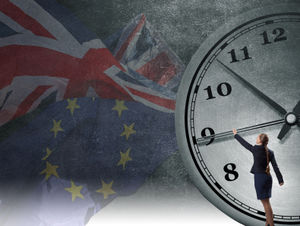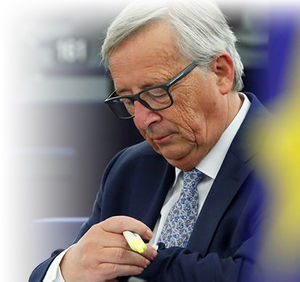Is it time for us to stop changing the clocks?
As Britain prepares to leave the European Union, bosses at Brussels are planning to scrap the annual ritual of putting clocks backward and forward.

Britain is preparing to turn the clocks back an hour on Sunday – but it could be the last time we get to do it.
The European Union is planning to scrap the annual hour change in April 2019, a month after the UK leaves the bloc.
According to Brussels, the proposal was agreed upon because the time change has a negative impact on people’s sleep, damages their health and inhibits productivity at work.
And it is not the first time in recent years that the idea of scrapping the time change has been put forward.
The UK originally considered ending daylight saving time in 2011 under David Cameron, but the idea was laid to rest after it was opposed by the Scottish Government.
This led the then London Mayor Boris Johnson to accuse the Scottish of preferring to throw away an extra £720 million in income so they could ‘stay in bed for an extra hour’.
Now a Lords report published last week says the debate is heading back to the top of the agenda.
The report to the Lords’ EU Internal Market Committee, says the UK will have to choose between a ‘permanent summer’ or a ‘permanent winter’.

Jean-Claude Juncker, the European Commission president, said that a recent consultation had shown that more than 80 per cent of EU citizens were in favour of the move.
“We carried out a survey, millions responded and believe that in future, summer time should be year-round, and that’s what will happen,” Mr Juncker said.
However, peers have urged ministers to ignore the plan and argued that it would cause unnecessary disruption to the single market.
See also:
They also argued that the proposals violate the EU principle where the bloc should only be allowed to make changes that cannot be made by the individual member states.
Peers also questioned the validity of Mr Juncker’s research, pointing out that the majority of the feedback was from only three member states.
In addition, they noted that 70 per cent of the responses came from Germany and that individual governments did not contribute their views.
Chairman of the EU Internal Market Committee, Lord Whitty, said: “The European Commission’s proposal to end seasonal time changes goes beyond its remit and is not in compliance with the principle of subsidiarity.
“We are therefore recommending that the House of Lords issues a reasoned opinion.”
When do the clocks change?
In the UK the clocks go forward one hour at 1am on the last Sunday in March, and back one hour at 2am on the last Sunday in October.
The period when the clocks are one hour ahead is called British Summer Time (BST). There's more daylight in the evenings and less in the mornings (sometimes called Daylight Saving Time).
When the clocks go back, the UK is on Greenwich Mean Time (GMT).
The committee also raised concerns that this was only a binary option, rather than there being a third option, where each state could decide for itself whether or not to to back clock changes.
It is unclear what impact Brexit will have on the decision.
Currently, the EU changes the clock every March and October in order to prevent potential disruptions to trade and transport.
MEPs have continued to argue that the time change has an adverse effect on children and elderly people.
They also say that the change disrupts sleep schedules and has the potential to harm work productivity.
Outside the EU, a handful of European countries have stopped switching between summer and winter time, including Turkey, Belarus and Iceland.
Solidarity
Clocks changed for the last time in Russia in 2011, with the rationale behind the move saying it would make cows calmer and doctors happier.
Issues of clocks, hours and working days are much discussed in Spain, which has been stranded in the wrong time zone for decades.
In 2013, a parliamentary commission recommended that Spain shift its clocks back one hour.
Although the country used to be on the same time as the UK and Portugal, it has run an hour ahead since 1942, when General Francisco Franco moved it forward in solidarity with Hitler’s Germany.
The commission also suggested that the long Spanish working day – including a two or three-hour lunch break – be altered to resemble the 9am to 5pm model.
Spain’s new socialist government signalled its support for the move this year. “Maybe Spain should be in a different time zone,” said the foreign minister, Josep Borrell.
“Frankly, I don’t know. Let’s give the European Parliament the chance to see whether it’s capable of finding a common denominator among countries that are in such different geographic situations.”
British Summer Time was first brought into fruition in the Summer Time Act 1916, following a tireless campaign of promotion by builder William Willett.
Daylight Saving Time was eventually implemented to make better use of daylight, creating lighter evening hours but darker morning hours.
The original campaign was to move the clocks forward by 80 minutes, in 20-minute stints on Sundays in April, reversing the procedure in September.
However, this was changed to an hour on a single day instead.





